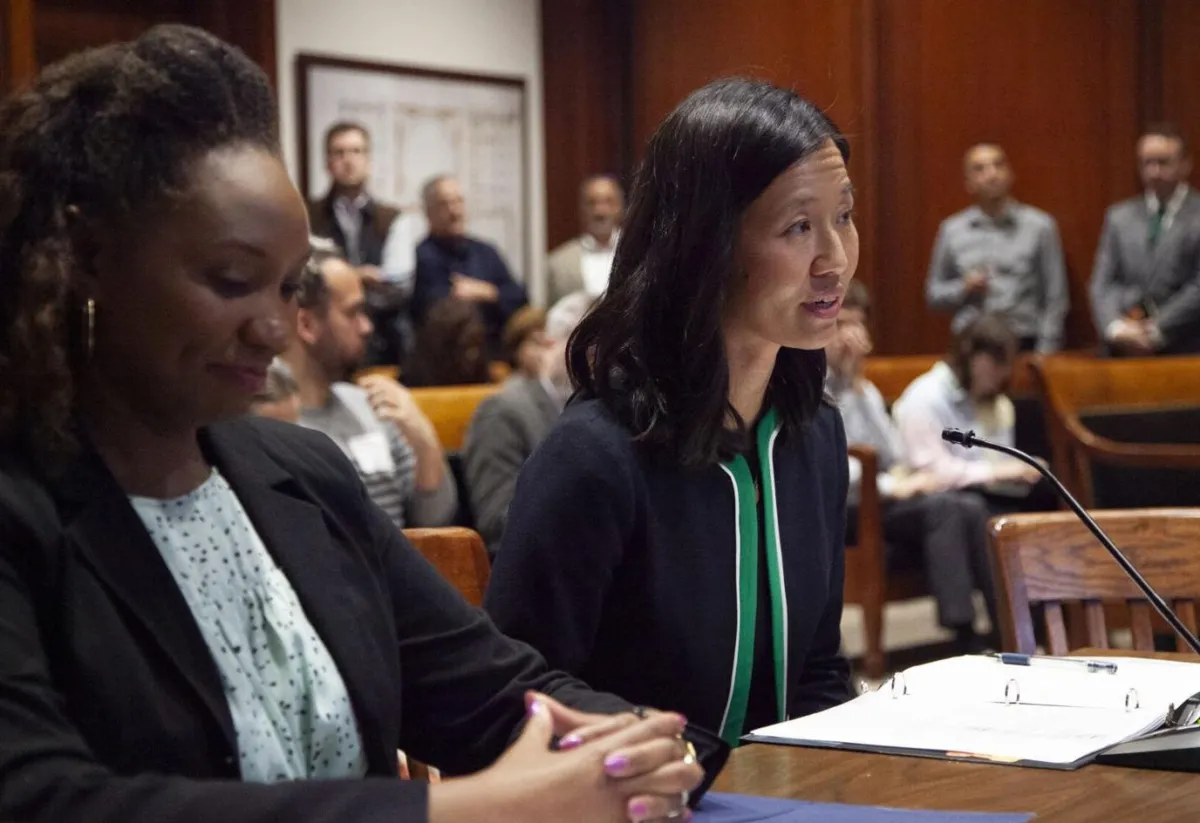By Gintautas Dumcius
See original post here.
Boston Mayor Michelle Wu says she backs the concept of universal basic income. What she doesn’t want is another limited pilot like the ones that have spread across the country.
The topic came up during a conference on philanthropy earlier this month that Wu attended, sharing the stage with singer-songwriter John Legend and talking about how philanthropic entities can work with city government. Prompted by a question from an audience member about universal basic income – or UBI as it’s sometimes called – Wu pointed to a pilot program in Chelsea and said it’s been an “ongoing topic of conversation” in Boston.
“What I have been struggling with when it comes to universal basic income is not the concept or the effectiveness of it, but how at the local level do we get to the scale where it can be sustainable and impact more than just a pilot program of say, 20 families or even 100 families,” Wu said.
In late 2020, as the COVID pandemic kept the economy shuttered, 15 percent of households in Chelsea received hundreds of dollars each month on a card. The 2,200 households in the high-density, low-income city had been selected via lottery for “Chelsea Eats,” an experiment in universal basic income.
The six-month pilot is considered a success, as the group of households spent more money on food and saw lower levels of financial distress compared to a control group. Food insecurity declined, and workers kept the same number of hours and employment levels.
But at the end of the pilot, which was funded by a combination of city revenue, state aid, and philanthropic money, “there was still substantial unmet financial need and high rates of food insecurity” in both the group that received the money and the control group, reported a research team at the Harvard Kennedy School’s Rappaport Institute for Greater Boston.
Other pilots have followed, including in Chicago, which has deployed federal American Rescue Plan Act funds toward a basic income program for 5,000 residents. Closer to home, Cambridge and Somerville have undertaken their own efforts.
Inside Boston’s City Hall, Wu counts herself as a supporter of universal basic income. “We know it works,” she said, but she added that the time for experimenting is over.
“All of the programs in the area, we’ve seen a small batch of several dozen families for a set period of time and then it eventually goes away,” she added. “And of course for those families for those two years or however long it went, that was life-changing, but how do we start to take some of the findings from all the UBI pilots around the country in different cities and start to build something that’s actually scale-able?”
Addressing the philanthropic sector inside the Seaport hotel where the conference was held, Wu asked those in the audience for help to go beyond “just one more small experiment.”
Her administration has been focused on using federal money for other things, Wu noted. She pointed to the three free bus lines, a pilot which ends in February 2024. The city is spending $8 million in federal funds on the pilot, repaying the MBTA for lost fares.
Kendra Lara, who is set to leave the City Council in January, recently proposed a basic income program for families living at or below the poverty line. Roughly 115,000 people in Boston fall under that category, according to the nonprofit ABCD, placing the poverty rate at nearly 18 percent.
A hearing is planned for November 27. Lara’s proposal calls for 1,000 families to each get $7,600 a year, or about $7.6 million, about what it costs to make three bus routes free. The money under Lara’s proposal would come from city and private funds.
To scale such a program up for Boston as a whole could cost hundreds of millions of dollars. UBI critics often note the price tag of implementing it.
“Poverty is one of the most persistent and ongoing issues that as a city, state, and a country we have been unable to solve,” Lara said. “It impacts health outcomes, it impacts education outcomes, it impacts birth outcomes, it has impact on every single part of a person’s life.”
Ross Wilson, executive director of the Shah Family Foundation, was one of the architects of the Chelsea pilot. Some universal basic income pilots across the country target specific populations, such as people who just left incarceration, or single mothers, Wilson noted.
For example, if Boston school officials believe all children should get more academic support, but there aren’t enough tutors in the school system, officials could offer the money directly to families, according to Wilson, who previously worked for Boston Public Schools, holding a variety of titles, including deputy superintendent.
There is an opportunity to look at various department budgets, and getting rid of red tape, as well as a paternalistic attitude toward city residents, he added.
“Rather than doing things for them or guessing at what they need, if we give cash assistance, they know how to spend it for themselves,” Wilson said. “That has been proven over and over again.”
















